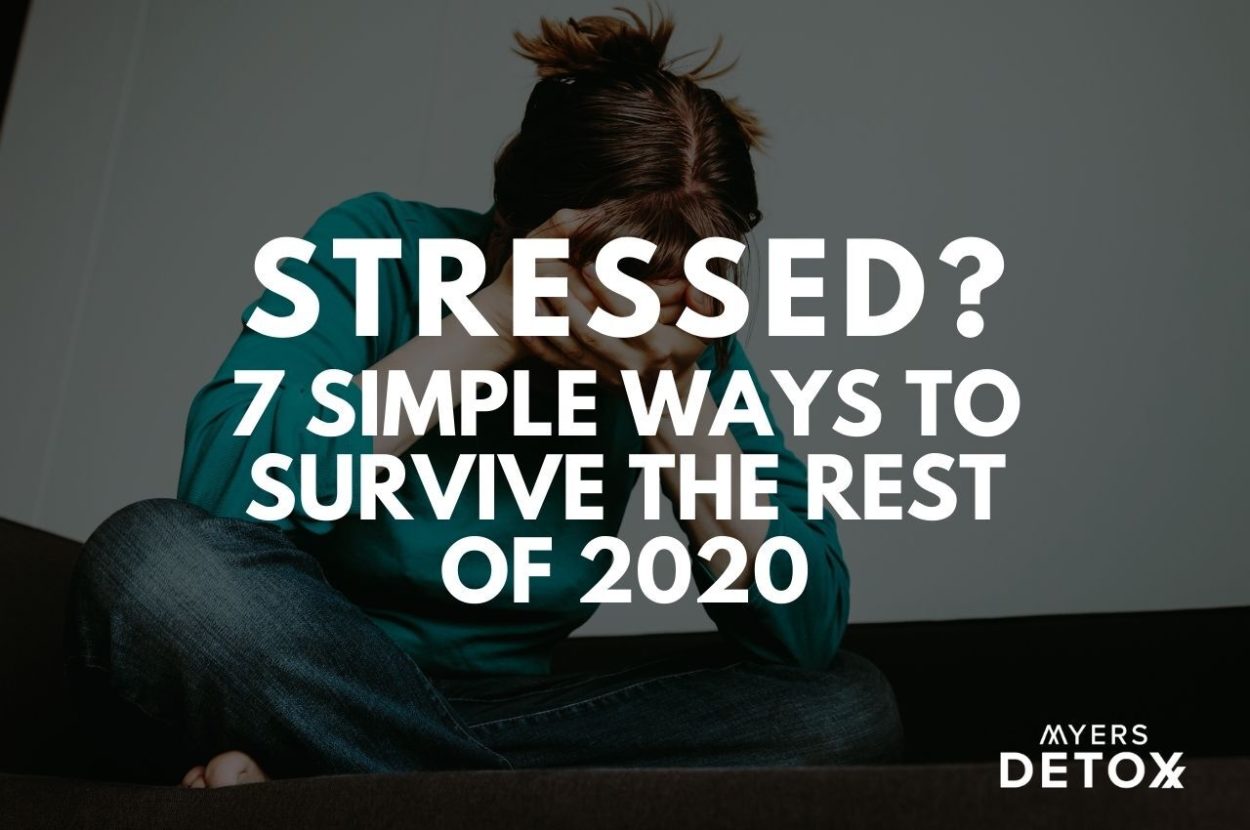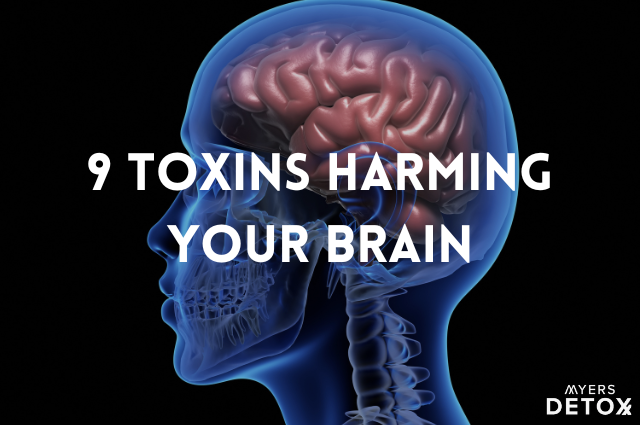Dealing with stress is nothing new for most people living in modern societies. With the pressures that come from work, finances, health, and family, it can feel for many people like they’re just trying to survive the day.
The problem with stress is that it is very easy to ignore and push aside for more “pressing” issues, which only serves to exacerbate the problem. This is likely why there are so many people walking around stressed and anxious every day.
In fact, research shows that most American’s suffer from moderate to high stress, with stress levels continuing to rise each year[1].
While there are many interventions that can be helpful to reduce stress, research shows that only 6.7% of the population actually makes time for self-care daily[2].
What makes stress even more troubling is the impact it can have on your physical body. Beyond the emotional issues and feelings of numbness that stress can evoke, it can impact your health on a cellular level leaving your immune system vulnerable and weak.
So what can you do to support your body and mind and prevent the detrimental side effects of stress? In this article, you’ll learn:
- How the mind-body connection works
- The direct impact stress has on your immune system
- How stress targets your liver, leaving it vulnerable to inflammation
- 7 strategies to reduce stress
- How to support your liver to fight stress-induced damage
The Mind-Body Connection
Why is it that when you experience psychological stress, which is rooted in the mind, you can feel physical symptoms like fatigue, headache, and nausea?
This is due to the intimate connection between your mind and body.
While traditional systems of medicine like Ayurveda and Traditional Chinese Medicine have understood the mind-body connection for thousands of years, it is only within the past decade or so that Western medicine has jumped on board.
With the development of a branch of psychology called psychoneuroimmunology, researchers are now diving into the science and identifying ways in which your mind has a direct impact on the health of your body, and it’s resistance to disease[3][4].
One of the most well-studied aspects of psychoneuroimmunology is the gut-brain axis, a communication system between your gut and your brain, modulated by your immune response. As research unfolds, it has been revealed that your gut microbiome plays a crucial role in your immune response, and through signaling molecules, they are able to communicate with your brain.
What’s more, this communication system appears to be bi-directional — meaning your brain can also communicate with your gut. Therefore, your immune system and nervous system are constantly in communication to maintain the homeostasis of your body[5].
Although the gut-brain axis is one of the most well-studied aspects of the mind-body connection, the truth is that almost every system of your body is impacted by aspects of your mind — and vice versa.
Psychological stress offers an excellent example of how this interaction plays out. Research shows that stressful emotions can directly impact immune cells, causing a cascade of physiological events to happen in your body. And this is in addition to the direct impact that stressful emotions have on your nervous system and stress hormones[3].
It makes sense then, that the side effects of stress fall into the categories of both physical and emotional.
Common Symptoms Associated With Stress
Due to the intimate relationship between your mind and body, the symptoms associated with stress can be both physical and emotional. Some of the most common symptoms or side effects of stress include[6]:
Physical:
- Headaches
- Muscle tension or pain
- Fatigue
- Low libido
- Sleep problems
- Upset stomach
- Constipation or diarrhea
- Chest pain
Emotional/ Behavioral:
- Overeating or undereating
- Lack of motivation
- Anxiety
- Depression
- Restlessness
- Irritability
- Anger
- Inability to focus
- Drug or substance abuse
Let’s take a quick look at how stress directly impacts your physical body.
The Impact Of Stress On Your Body
Stress has an impact on almost every system in your body. It can create digestive disturbances, impact your sex hormones, affect cardiovascular health, and directly impact the function of your immune system[7][8][9].
One of the organs that is most significantly impacted by stress, however, is your liver. Research shows that due to the connection between stress and immunity, stress has a direct effect on your liver’s inflammatory response. Some research even shows that emotional stress may increase your risk for liver disease[10].
There are two systems in your body that become activated during a stress response, your HPA axis (hypothalamic-pituitary-adrenal) and your sympathetic nervous system.
The interplay of these two systems allows your body to respond to stress but also activates your immune response at the same time[11].
Your HPA axis is responsible for releasing hormones that modulate your stress response. On the one hand, these hormones allow you to act accordingly by stimulating specific functions in your body to handle the stressful incident. This can be very helpful if you’re in danger and truly need your “fight or flight” response to keep your alert and energized[12].
On the other hand, however, these hormones can produce inflammation in your body by activating your immune response. Research shows that the inflammation instigated by these stress hormones can target your liver, and even lead to fibrosis[13].
7 Simple Ways To Lower Stress
If you’re suffering from stress, there are several solutions that can help you mitigate the impacts that stress has on your mind and body. Many of these techniques come from Eastern philosophy, but have been slowly incorporated into Western culture as they are powerful mediators of the all too common stress response.
Some of the most well-researched stress reduction techniques include:
#1 Meditation
Perhaps the most well-known stress-reduction technique is mediation. Research shows that only five to ten minutes of meditation per day can result in physical changes in your brain, which indicate an enhanced ability to handle stress.
Conditions related to stress, such as high blood pressure, psychological disorders, insomnia, irritable bowel syndrome (IBS), and physical pain, may all benefit from a regular meditation practice.
While there are several different types of meditation, the one that is most researched for stress is mindfulness meditation[14].
Mindfulness meditation asks you to observe yourself (often your breath, your thoughts, or your body) without judgment. As you sit and observe yourself nonjudgmentally, you allow your mind to rest, as you become less attached to your internal chatter. It makes sense that this type of meditation would help with stress as most of the stress that we experience comes from our internal world, as opposed to environmental conditions[15].
#2 Mindful Practices
The good news about mindfulness is that you can use it in everyday activities. If you don’t have time to sit, or you just can’t imagine being able to quiet your mind with your eyes closed, you can use other mindful practices to draw your attention inward.
For instance, you can mindfully brush your teeth in the morning, paying attention to the way the toothpaste tastes, the feel of the toothbrush on your teeth and tongue, the scents, sounds, etc.
The same goes for cooking, eating, and even walking. Try going for a ten-minute walk where you pay attention to the colors that you see, the feeling of the ground beneath your feet with each step, the sound that your shoes make as you walk. As you stay focused on what is happening right here in the moment, you are turning your attention away from your busy mind and into the here and now.
#3 Yoga
Yoga is another ancient practice that can be used to bring balance to your mind and body. Research shows that practicing yoga can reduce stress, anxiety, depression, and can even be helpful in the recovery from addiction.
The key to an effective yoga practice isn’t about perfection in the postures; rather, it is about focusing your attention on your breath and being kind to your body as you move. In addition to the psychological benefits of yoga, you can also expect physical benefits like enhanced flexibility, endurance, cardiovascular health, respiratory health, and sleep[16].
#4 Exercise
Moving your body is an excellent way to manage stress, especially when it comes on strong. For many people, sitting in a meditation or flowing through a yoga class may be too tedious when your mind is flooded with stress and worry.
Physical movement, however, tends to take your mind off of your stressors, or at least take the charge off a bit.
Some of the benefits of exercise on stress include[17]:
- It enhances your feel-good hormones (endorphins), so you have a more sunny outlook and may be able to see solutions that were not accessible in your stress-induced state.
- It allows you to take your mind off your worries, as you focus on the exercise that you are doing. This can be especially true in situations where you are playing a sport or doing some type of physical activity that requires your full attention like rock climbing. In this way, it is very similar to meditation.
- Because exercise itself causes a small amount of stress on your body, it helps your body’s systems to respond to stress. This may make it easier for you to process stress in your daily life.
- It improves sleep, which is a factor that is directly tied to your stress response. When you’re well-rested, you’re much better at handling stressful events and circumstances.
#5 Journaling
Some research suggests that journaling about traumatic events or stressful situations may produce benefits comparable to talk therapy[18].
Getting your thoughts out of your brain and down on paper can allow the cyclical nature of your thoughts to stop and give you space from your mental chatter. It’s much easier to look at your stressors objectively when you aren’t running the scenarios over and over again in your mind[19].
It’s hypothesized that while you write, you are able to confront emotions that you are not able to handle when you simply ponder your issues. Again, objectivity plays a significant role in your ability to process the information that’s streaming through your mind[20].
#6 Breathwork
Using your breath is a powerful way to reduce the physiological signals in your body that tell you you’re stressed. In a way, when you modulate your breath correctly, you can trick your body into thinking that you’re in a relaxed state.
One specific type of breathwork, called parasympathetic breathing, literally moves your body out of sympathetic mode and into parasympathetic mode. There are lots of different parasympathetic breathing techniques, but what most have in common is slowing the breath to signal to your body that it’s okay to relax.
Some of the changes you can expect when you slow your breathing include an increase in feelings of comfort, relaxation, pleasantness, vigor, and alertness, as well as a reduction in anxiety, depression, anger, and confusion[21].
#7 Diet
Nothing in your body happens in a vacuum. Therefore, if you’re experiencing imbalances in one area, it’s going to put more pressure on the rest of your body to find homeostasis.
Diet is a simple yet powerful way that you can assist your body in finding balance. It is equally as powerful, therefore, in throwing your body out of balance. In fact, research shows a direct correlation between diet quality and mental health, specifically high-fat and high-sugar diets[22].
Diets that are made up of low-quality food often instigate inflammation in your body, which in turn can impact your gut-brain axis. As mentioned before, your mind and body are intimately tied — when one is out of balance, the other follows[23][24].
Inflammation has been tied to mental disorders such as depression, anxiety, and bipolar disorder[25][26][27].
Following a diet that’s low in inflammatory foods is an excellent way to not only reduce stress on your body but also reduce your susceptibility to a host of chronic diseases[28].
Takeaway
The fact of the matter is, stress is just a part of life—the good news: the ability to manage its side effects is well within your grasp.
Using tools like meditation, breathwork, journaling, and yoga are fantastic ways to mitigate some of the impacts of stress and give yourself space from stressful thoughts. These lifestyle practices continue to gain traction in the medical field, and research supporting their benefits is growing by the day.
But stress doesn’t only occur in the mind, it has a direct effect on your body as well. This is why dietary strategies and supporting your liver are crucial aspects of managing stress and keeping your body in balance.
As understandings of the mind-body connection continue to grow, we will likely see even more target strategies for mitigating stress. For the time being, however, it’s up to you to be your own health advocate and care for both systems with loving care.










